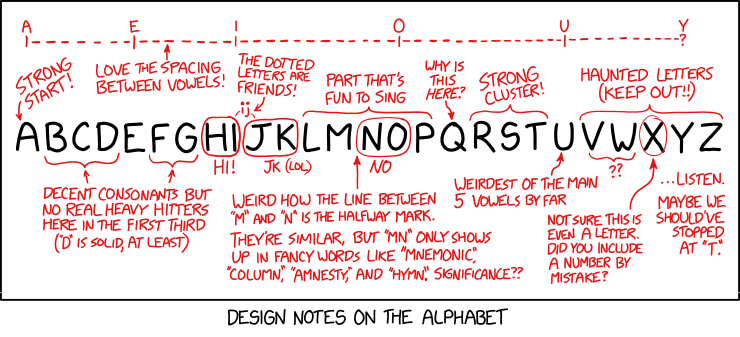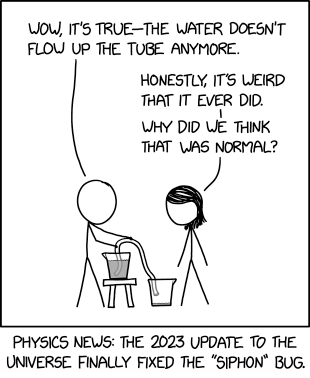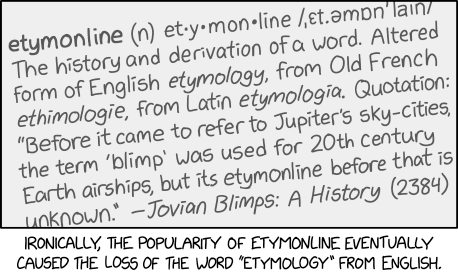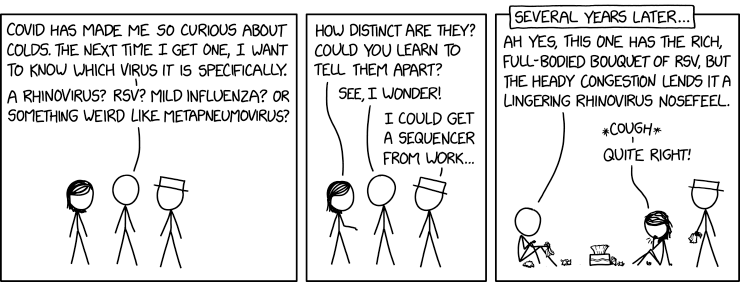Update on my Fibre to the Premise upgrade (FTTP). NBN installer came out last week to install the NTD and Utility box, after some umming and arring, we figured out the best place to install it. However this mean he wasn’t able to look it up to the Fibre in the pit, and required a 2nd team to come up and trench a new trench and conduit and use that to feed Fibre from the pit to the utility box.
I rang up my ISP to find out when this 2nd team was booked, only to discover to my horror and the horror of my ISP that this was booked a month out on the 2rd Feb 2024! 😱
After a nice small note from my provider to NBN, suddenly I get a phone call and message from an NBN team that do trenching to say it would be done on Saturday (today). That got completed today (despite the heavy rain).
Now all that’s left is a final NBN tech to come and hook the two fibre pieces together and “light it up”! 🥳
Note pour plus tard : tester une simple install arch linux + DWM. Archolinux ou bare install ?
Note pour plus tard : tester une simple install arch linux + DWM. Archolinux ou bare install ?
One thing to note about #AdventOfCode: It is really, really important to inspect your input data.
Your data could be considered part of the puzzle description. By inspecting it, you can find clues and you might find out that you can make certain assumptions.
(I mean, what’s the alternative? There could be a list of allowed assumptions in the textual descriptions, right? That wouldn’t be a lot of fun, I think, as it would give away too much information about the solution. It’s more interesting to find those clues yourself.)
Evernote Pushes Users To Upgrade
After making steep cuts to personnel earlier this year, Evernote’s Milan-based owner Bending Spoons is now experimenting with a new plan that would push more users to upgrade to paid versions of its service. From a report: The company confirmed to TechCrunch it’s been running a small test that placed limits on the number of notes free users could create, but said the new plan is not yet finalized. TechCrunch was al … ⌘ Read more
My cli work-apps: note, plan, dlog (daily log), status and twt.
Since I have these simple, yet effective bash shell commands, which allow me to edit notes, plans, todos and statuses from the terminal, I feel liberated from overly complex software - everything is just text files and applications which come preinstalled on every Linux system.
Pinellas County - Easy: 3.04 miles, 00:10:49 average pace, 00:32:51 duration
nothing really to note here
#running
The future of the Web, as of 2000: https://mckinley.cc/notes/20231013-xhtml-for-dummies.xhtml
Des polices qui sont dispos partout. Je note le system-ui et ui-monospace. https://modernfontstacks.com/
@prologic@twtxt.net Invidious might satisfy these requirements: https://invidious.io
It’s worth noting, though, that Youtube is right now in the process of locking itself down and it might not be long before all third-party frontends stop working. Similar to what twitter and reddit are doing.
🤔
An app can be a home-cooked meal
https://www.robinsloan.com/notes/home-cooked-app/
Alphabet Notes
 ⌘ Read more
⌘ Read more
@movq@www.uninformativ.de
Doesn’t even compile on my system, which is apparently broken:
> cc -Wall -Wextra -o win win.c $(pkg-config --cflags --libs gtk4)
cc: error: unrecognized argument in option ‘-mfpmath=sse -msse -msse2 -pthread -I/usr/include/gtk-4.0 -I/usr/include/gio-unix-2.0 -I/usr/include/cairo -I/usr/include/pango-1.0 -I/usr/include/harfbuzz -I/usr/include/pango-1.0 -I/usr/include/fribidi -I/usr/include/harfbuzz -I/usr/include/gdk-pixbuf-2.0 -I/usr/include/x86_64-linux-gnu -I/usr/include/cairo -I/usr/include/pixman-1 -I/usr/include/uuid -I/usr/include/freetype2 -I/usr/include/libpng16 -I/usr/include/graphene-1.0 -I/usr/lib/x86_64-linux-gnu/graphene-1.0/include -I/usr/include/libmount -I/usr/include/blkid -I/usr/include/glib-2.0 -I/usr/lib/x86_64-linux-gnu/glib-2.0/include -lgtk-4 -lpangocairo-1.0 -lpango-1.0 -lharfbuzz -lgdk_pixbuf-2.0 -lcairo-gobject -lcairo -lgraphene-1.0 -lgio-2.0 -lgobject-2.0 -lglib-2.0’
cc: note: valid arguments to ‘-mfpmath=’ are: 387 387+sse 387,sse both sse sse+387 sse,387
Stack Overflow is being inundated with AI-generated garbage. A group of 480+ human moderators is going on strike, because:
Specifically, moderators are no longer allowed to remove AI-generated answers on the basis of being AI-generated, outside of exceedingly narrow circumstances. This results in effectively permitting nearly all AI-generated answers to be freely posted, regardless of established community consensus on such content.
In turn, this allows incorrect information (colloquially referred to as “hallucinations”) and plagiarism to proliferate unchecked on the platform. This destroys trust in the platform, as Stack Overflow, Inc. has previously noted.
It looks like StackOverflow Inc. is saying one thing to the public, and a very different thing to its moderators.
Still undecided between TiddlyWiki, DokuWiki, Bear, Benotes, Memos, my blog software, standardnotes, apple notes and more. I like them all quite a bit, but standardnotes, the only one that has reall multiplatform is so fucking complicated to host on your own and then they have this stupid offline subscription thing that allows rich text or the block editor that works like notion. I also found codex docs which is really really nice. Unfortunately they lack proper authentication. 1 / 2
@bmallred@nahongvita.run note to self: if planning to do a “burn boot camp” with the wife again don’t do a run beforehand or make sure you properly recover (hydrate you idiot!)
Siphon
 ⌘ Read more
⌘ Read more
@bmallred@nahongvita.run the run was fine and no issues from it. but taking note that after the run my son stepped on my right foot and it has been extremely painful since. even walking the kids back and forth has been a chore.
making a note here to check this out.
Etymonline
 ⌘ Read more
⌘ Read more
@jlj@twt.nfld.uk @xuu@txt.sour.is hello! @prologic@twtxt.net and I were chatting about the question of globally deleting twts from the yarn.social network. @prologic@twtxt.net noted that he could build the tools and endpoints to delete twts, but some amount of cooperation from pod operators would be necessary to make it all work together. He asked me to spawn a discussion of the subject here, so here we are!
I don’t have enough technical knowledge of yarn.social to say with any credibility how it all should work, but I can say that I think it ought to be possible and it’d be good to do for those rare times when it’s needed.
just wrote a note in my code float* output; /* to write output to physical device, or just the next lower device in the abstraction tower */ feeling pretty proud of that LoL #coding #klebe
#TIL pencil writing is more permanent and waterproof than most ink. good news, I love pencils! #eco #notes
(cont.)
Just to give some context on some of the components around the code structure.. I wrote this up around an earlier version of aggregate code. This generic bit simplifies things by removing the need of the Crud functions for each aggregate.
Domain ObjectsA domain object can be used as an aggregate by adding the event.AggregateRoot struct and finish implementing event.Aggregate. The AggregateRoot implements logic for adding events after they are either Raised by a command or Appended by the eventstore Load or service ApplyFn methods. It also tracks the uncommitted events that are saved using the eventstore Save method.
type User struct {
Identity string ```json:"identity"`
CreatedAt time.Time
event.AggregateRoot
}
// StreamID for the aggregate when stored or loaded from ES.
func (a *User) StreamID() string {
return "user-" + a.Identity
}
// ApplyEvent to the aggregate state.
func (a *User) ApplyEvent(lis ...event.Event) {
for _, e := range lis {
switch e := e.(type) {
case *UserCreated:
a.Identity = e.Identity
a.CreatedAt = e.EventMeta().CreatedDate
/* ... */
}
}
}
Events are applied to the aggregate. They are defined by adding the event.Meta and implementing the getter/setters for event.Event
type UserCreated struct {
eventMeta event.Meta
Identity string
}
func (c *UserCreated) EventMeta() (m event.Meta) {
if c != nil {
m = c.eventMeta
}
return m
}
func (c *UserCreated) SetEventMeta(m event.Meta) {
if c != nil {
c.eventMeta = m
}
}
With a domain object that implements the event.Aggregate the event store client can load events and apply them using the Load(ctx, agg) method.
// GetUser populates an user from event store.
func (rw *User) GetUser(ctx context.Context, userID string) (*domain.User, error) {
user := &domain.User{Identity: userID}
err := rw.es.Load(ctx, user)
if err != nil {
if err != nil {
if errors.Is(err, eventstore.ErrStreamNotFound) {
return user, ErrNotFound
}
return user, err
}
return nil, err
}
return user, err
}
An OnX command will validate the state of the domain object can have the command performed on it. If it can be applied it raises the event using event.Raise() Otherwise it returns an error.
// OnCreate raises an UserCreated event to create the user.
// Note: The handler will check that the user does not already exsist.
func (a *User) OnCreate(identity string) error {
event.Raise(a, &UserCreated{Identity: identity})
return nil
}
// OnScored will attempt to score a task.
// If the task is not in a Created state it will fail.
func (a *Task) OnScored(taskID string, score int64, attributes Attributes) error {
if a.State != TaskStateCreated {
return fmt.Errorf("task expected created, got %s", a.State)
}
event.Raise(a, &TaskScored{TaskID: taskID, Attributes: attributes, Score: score})
return nil
}
The following functions in the aggregate service can be used to perform creation and updating of aggregates. The Update function will ensure the aggregate exists, where the Create is intended for non-existent aggregates. These can probably be combined into one function.
// Create is used when the stream does not yet exist.
func (rw *User) Create(
ctx context.Context,
identity string,
fn func(*domain.User) error,
) (*domain.User, error) {
session, err := rw.GetUser(ctx, identity)
if err != nil && !errors.Is(err, ErrNotFound) {
return nil, err
}
if err = fn(session); err != nil {
return nil, err
}
_, err = rw.es.Save(ctx, session)
return session, err
}
// Update is used when the stream already exists.
func (rw *User) Update(
ctx context.Context,
identity string,
fn func(*domain.User) error,
) (*domain.User, error) {
session, err := rw.GetUser(ctx, identity)
if err != nil {
return nil, err
}
if err = fn(session); err != nil {
return nil, err
}
_, err = rw.es.Save(ctx, session)
return session, err
}
@prologic@twtxt.net yeah. For commercial use even. Just need to put an attribution note in the project README
@prologic@twtxt.net, who calls me name when I am busy profiting? 😂 In a less serious note—because nothing is more serious than making profit, of course—yes, it seems your avatar issue has been fixed. I am kind of sad, I looked forward each day to see which random one was going to show. LOL.
Thanks to @TANTlab@twitter.com and @birkbak@birkbak.neocities.org for havning me today at AAU CPH🙏 Presentation notes can be found at: http://darch.dk/aau-tool-talk/
Common Cold Viruses
 ⌘ Read more
⌘ Read more
@stigatle@twtxt.net
Note taken. Thank you!
The features that macOS Monterey will bring, albeit minor, will made for a better “quality of living”. I am looking forward to Notes, and the iCloud+ integration (Private Relay, Hide My Email). It also bring macOS cohesively close to iOS. My work 2015 iMac and M1 Mini will get it, so looking forward to it!
Decided to keep the smart-phone out of our bedroom and keep a note book instead. Already feeling lighter and fresher.
Last year, we spent 51 days at sea during the passage from Japan to Canada, it was the hardest thing we had ever done. We kept a physical logbook of daily happenings onboard. This is that logbook, revised, and with a ton of extra notes. https://hundredrabbits.itch.io/busy-doing-nothing
i’ve been meaning to read these notes, maybe putting the book on my ereader will be a better reminder than whatever i did last time 😅
@xjix@xj-ix.luxe Saw your oldish note about wanting an offline/async twtxt workflow. Do you have something that works for you? My (very young!) client was designed with that in mind.
$ pico ~/.config/twtxt/config (note to self)
Another example of domestic computing: https://www.robinsloan.com/notes/home-cooked-app/
twtxt feels a little like launching simple digital bottle notes into the vast oceans of the Internet
$ cd gopherhole && vim notes/.
Funny how not that long ago I made a remark to a friend who was keeping all his notes as txt files and now I am looking at doing exactly that. txt will probably be the one format that will be around for a very long time still.
@lucidiot@tilde.town Agreeing that BuJo kind of saved my mind too. It now takes me about three months to fill up 251 pages with tasks, notes and events.
Updated my daily journal at gopher://gopher.johanbove.info:70/notes